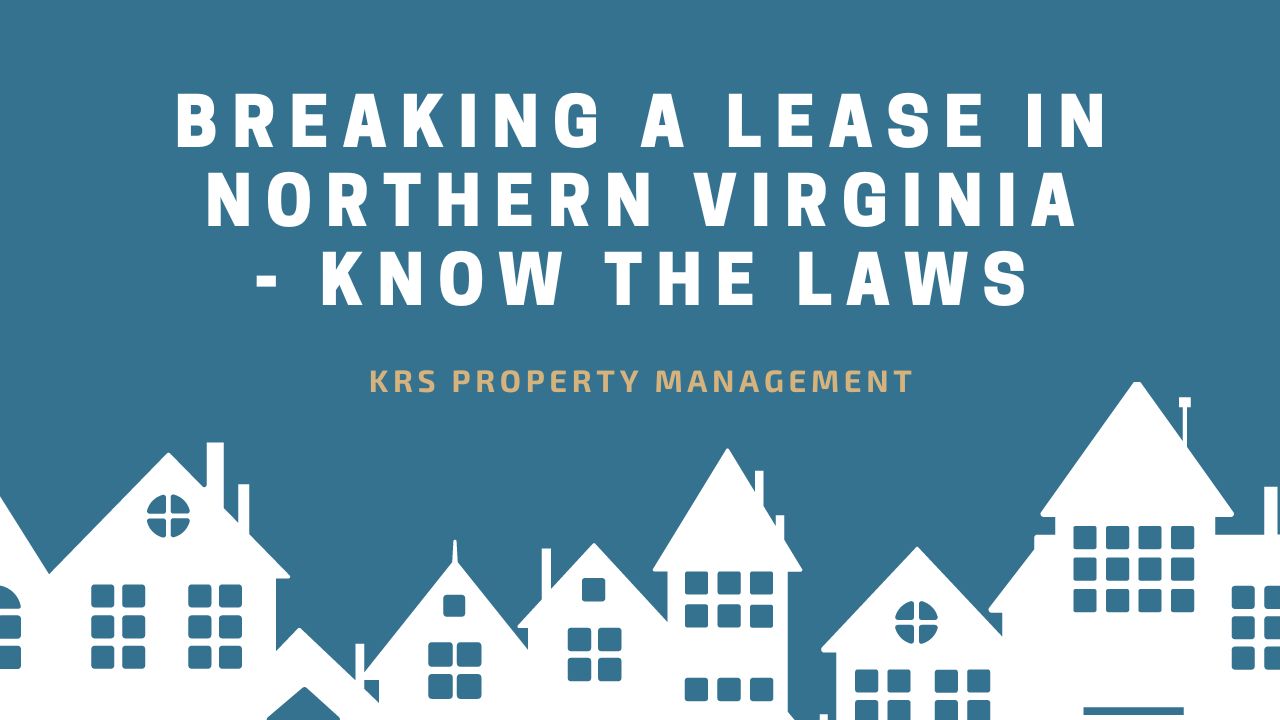
A tenants lease runs for a specific period, usually anywhere between 6 months and a year. For this entire period, a tenant must abide by all terms of the agreement, including to pay rent, whether or not the tenant lives there.
Since a lease or rental agreement is legally binding, breaking it has some financial penalties. As a landlord, if your tenants violate the lease, you’ll be able to hold them liable for all rent remaining under the lease. The landlord may also use all or part of their security deposit fee.
However, there are some exceptions to this rule that we’ll discuss. In this article, we’ll walk you through everything you need to know when it comes to your Virginia tenant breaking a lease.
Tenants’ Rights & Responsibilities When Signing a Lease or Rental Agreement in Virginia
The Virginia Residential Landlord-Tenant Act (Title 55.1. Chapter 12 of Virginia Statues) gives tenants certain rights and lease obligations after signing the lease. The following are some of those rights.
They have the right to:
- Live in a habitable rental property unit that meets the Virginia warranty of habitability.
- Live without being harassed by the landlord.
- Enjoy the rental unit in peace.
- Be served the required disclosures before moving in.
- Have the landlord draw up a legal lease agreement.
When it comes to responsibilities, Virginia tenants must:
- paying rent for the entire term of the lease, whether or not they live there to the landlords.
- Notify the landlord when maintenance issues crop up.
- Care for the rent property by handling small repairs and maintenance issues.
- Notify the landlord when looking to move out.
- Abide by all rental pay policies specified by landords.

When Breaking a Lease Agreement in VA is Legally Justified
The following are a handful of scenarios where tenants can legally break a lease in Virginia.
1. The lease agreement allows it.
Some landlords allow their tenants to break a lease agreement by including an early lease termination clause in the agreement. In most cases, an early termination clause requires that a tenant pay a fee, as well as provide a written notice before moving out.
If tenants meet all the requirements, then the landlord will let them violate the lease early and move out under the early termination clause.
2. The tenant is starting active military service.
Is your tenant starting an active duty and needs to relocate? If so, thanks to the Servicemembers Civil Relief Act, breaking a lease early without penalty is permitted. The protection begins the day they enter active duty and ends anywhere between thirty and ninety days after being discharged.
Before the tenant violates their lease, they must do the following things:
- They must prove that they signed the lease agreement before starting active military duty.
- They must prove that their military service is going to extend beyond ninety days.
- They must notify landlords – in writing – about their pending deployment, and attach copies of the deployment letter.
But even with all this done, the earliest the lease can terminate is 30 days after the next rent cycle begins. Suppose, for instance, that they delivered the written notice on the 30th of April, and the next rent is going to be due on the 1st of May. In this case, the earliest the lease can terminate is on the 1st of June.
This would mean that the tenant would still be responsible for paying the rent of May. Virginia defines “servicemembers” as a member belonging to the armed forces, the activated National Guard, the commissioned corps of the Public Health Service, and the commissioned corps of the National Oceanic and Atmospheric Administration.
The landlord can start advertising the rental for a new tenant when you are sure the rental will be vacant, avoiding court.

3. The Rental Unit is No Longer Habitable.
As a landlord, you’re required by Virginia laws to rent out a property that meets the state’s warranty of habitability. The warranty of habitability defines the minimum safety and health codes that rental properties must meet (VA Code § 55-225.3). As a landlord, be sure you’re doing the following things:
- Landlords must comply with all the minimum safety and health codes.
- Maintain all heating, sanitary, plumbing, ventilating, and electrical facilities.
- Landlords must make rent property repairs on time.
- Landlords must provide hot and cold running water on the unit.
- Landlords must provide properly functioning smoke and carbon monoxide detectors.
4. The tenant is subject to landlord harassment.
Some actions can be serious enough to be deemed landlord harassment actions. For example, entering your tenants rented unit without serving them proper notice, removing their personal belongings, or locking them out of the unit.
5. The tenant is a victim of domestic violence.
Domestic violence victims in Virginia have certain special rental provisions. Among these special provisions is the ability to break their lease early after serving the rental property owner with a 30-day written notice.
6. The landlord Fails to Provide the tenant with the mandatory disclosures.
As a Virginia landlord, you are required to provide your tenants with certain disclosures before allowing them to move in.
The following are some of them:
- The landlord's duty is to disclose whether the rental property has a defective drywall.
- Disclosure on whether the property has previously been used in the manufacture of methamphetamine.
- A disclosure on whether the rental property is located adjacent to a military air installation.
If landlords fail to provide these disclosures, then breaking a lease in Virginia is permitted. It is reccommended to include these disclosures in the lease agreement for any old and new tenant to avoid court rates.

Landlord’s Duty to Find a New Tenant in Virginia
In Virginia, a landlord has no duty to mitigate damages by finding a replacement tenant for their property. This, therefore, means that a landlord can just sit back and wait for the lease to end, then hold the tenant liable for all unpaid rent under the lease in Virginia.
Bottom Line
As a landlord, understanding the reasons your tenants can legally break their lease is crucial You want to avoid giving them the option to break their lease in Virginia as much as possible, aswell as giving you the right amount of notice to find a replacement tenant. If they do break their lease, know that you can hold them liable for all rent remaining under the lease in Virginia, or serve an eviction notice .
You should also stay informed of a tenant's Fair Housing Rights, landlord-tenant laws, and other rental policies. For more information about our services in Richmond and Northern Virginia, contact our team at KRS Holdings.
Disclaimer: This blog isn’t a substitute for professional legal advice from a qualified attorney. Laws change frequently, and this post might not be updated at the time of your reading. If you have a question regarding this content or any other aspect of Virginia landlord-tenant laws, KRS Holdings can help.
You can count on KRS Holdings to receive a reliable service, performance, and responsiveness from a dedicated team. Get in touch to learn more!






